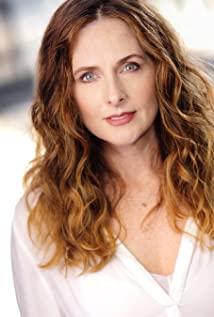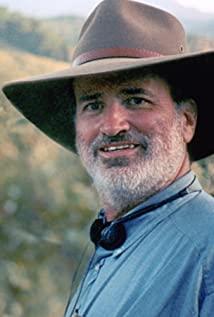Prelude
(Tchaikovsky, Season, op. 37b)
http://music.baidu.com/song/22854574#b252cd061fd5cf481607d0479c7755b2Before the
death of American film critic Roger Ebert The last review I wrote was about his beloved Malick's last year's film, To the wonder or To the Wonderland. The "obscure abstraction" of the film is different from the cosmology-like debate and meditation in Malik's last film, The Tree of life, but it responds to the elusive yet unceasing flow of life and love itself (“elusive”). and effervescent”). Several important themes, love, salvation, betrayal, tolerance, estrangement, escape, faith and doubt, unfold in natural time-space changes and seasons; a variety of music (31 tracks in total!) from Bach In Arvo Paert, different languages (French, English, Italian and Spanish, considering the director's background in Heidegger's philosophy, unfortunately there is no German) and extremely expressive shots, weaving a set of images and sounds, faces and murmurs, emotions A symphonic poem in which fate (the gathering, dispersal, and reunion) and natural elements (water, light, wind, wild grass, land) penetrate each other. Please come along with several themed music clips to enter Malik's carefully constructed Babaolou platform.
1: Love as Salvation? !
http://music.baidu.com/song/12512880
(Wagner Parsifal, Prelude to Act 1.)
"Love is higher than the spirit", Schelling's love as the principle and element is used to counteract Hegel's absolute spirit, but it is still related to the Christian divinity of love. Likewise, the Wonder of love in the film is associated with salvation from the very beginning. The French woman, marina, seems to have lost her hope for love and life, but she met American Neil in Paris, which made her fly briskly again. Under the penetration of the holy light, the hands of the two people melted, "two become one" un, deux, un. The camera turns to the castle on the St. Michel hill in Normandy, and the two climb the steps, as if "walking into Wonder” (we climbed the steps to the Wonder). At the same time, one of the theme music, Wagner’s parsifal’s first act prelude also sounded in time, a high and hopeful version of Dur major, not later when marina had an affair at the motel The sad Moll minor version used. In the castle, the eyes and the body of the two met in pursuit, avoided in hesitation, and immersed in sudden happiness. The sensitivity of the camera to the expressions and gestures seems to have been shot by a French director. However, the contrast between Neil's taciturn and melancholy (the narration of the entire film is mostly in French, and some sentences are intentionally not translated by the director in the subtitles) and the happiness written on the face of marina paved the way for later conflicts.
From gloomy Europe to a small town on the sunny, simple and clean oklahoma steppe, Tchaikovsky's "seasons" remind us that the theme begins to change. After the "avalanche of tenderness" in the early stages of love, marina began to expand the meaning of love in confusion in the vast and unfamiliar world of nature: "what is this love that loves us, comes from nowhere or from all around? "Love loves us, from nowhere but everywhere. Responding to this theme, Father Bardem's appearance is like in 007 Sky Fall. No one has been seen, and the voice of preaching in the church has come first: Human love is just a stream that easily dries up, while divine love is like The underground springs are surging. The irony is that the priest himself has been unable to experience and see the love of Christ everywhere, and his heart has become cold and hard and alienated.
When he preached to marina and neil that Christians should be brave enough to take on the responsibilities and risks of marriage, the world in marina's eyes has turned into ashes after the fire has burned. The river in winter ended this round of emotional reincarnation. Neil's young girlfriend, Jane, appeared. She was no longer as delicate, amorous and charming as her French girlfriend, but she was also vulnerable to the blow of fate and love. A touch of sad beauty.
2: The veil of melancholy
(Henryk Gorecki - III Lento: Cantabile semplice (Symphony No. 3). Sorrowful Songs)
http://music.baidu.com/search?key=Henryk+Gorecki+- +III+Lento%3A+Cantabile+semplice+%28Symphony+No.+3%29
Jane, who works in the wilderness of the farm, has gone through the pain of divorce and bereavement, but she still believes in marriage and prays for it, while Neil has no faith, and this relationship also ended without a trace. But Marina, who returned to Paris, was unable to adapt and had to go back to the United States. So whether it is the wild grass blown by the wind along with Jane's blonde hair, or the gloomy streets of Paris, the undertones of melancholy and sadness are lingering. Even the tone of the priest's high-sounding sermons has a hint of sadness, a counterpoint to the love of redemption. Regarding the relationship of love, melancholy, nature, and salvation, it seems that Malik has read Schelling's On Liberty. After that, marina and Neil reunited, but new conflicts broke out after marriage. Affair, betrayal, forgiveness, and the twists and turns of divorce are the proper procedures of secular love. In contrast, the priest's "you shall love" theory of the responsibility of love is ironic. It's interesting that the hand that marina stretched out in the sun after the affair is no longer as transparent as the previous two hands combined into one, and at the same time the theme of parsifal's rescue is so melancholy and powerless in mur minor.
Aristotle's disciple Theophrast once justified the name of melancholy, believing melancholy is indispensable to divine madness (divine mania), so most philosophers, poets and artists are melancholiker. So love( eros), as one of the main forms of divine ecstasy, naturally also contains this melancholy undertone. German often use schwermut (heavy) and sadness (trauigkeit) to translate and explain melancholy, which is appropriate.
3: Natural and Soft
Shostakovich, Piano Concerto No. 2, II, in F Major, Op. 102, andante
http://music.baidu.com/song/54265830#c45596064b78c464094446f8da16ec98
A homeless man told a priest in a church that the natural light coming in through the windows was also divine light, and the priest told us that God is in us and that the love of Christ is everywhere. But he often shut himself in a closed room, suffering from the inability to find the door to open the divine love, and his heart was drying up day by day. Perhaps in addition to the upward dimension of salvation, love can also open up to the dimension of nature. In this way, the veil of natural sorrow no longer expects the salvation of divinity or humanity, but provides the indispensable ground and back-ground and even the hidden source of love. And love, because of its naturalness and elemental nature, is greater than us, like light, water, and the wind on the grass, surrounding us without promising redemption aloft.
At the end of the film, marina is walking on the grass, kissing the wet branches, and saying, the love that loves us, merci. At this time, a golden light streaks across the horizon and hits her face.
Perhaps there is an open middle ground between the eruption of tenderness and the disillusioned ashes of love, in which we can gently "receive and give" (empfangend und reichend, "Hölderlin's land and sky" - Heidegger you). Just like the beach that was thawing at the beginning of the film, it was covered by the infiltration of the rising sea water, and the playful footsteps of the protagonist left traces on it, and then were silently erased by the tide. Perhaps the essence of love does not lie in the eruption of passion or divine salvation, but more in the game of chasing and dodging, accepting and giving in the element of gentle and clear love.
Related materials:
http://www.rogerebert.com/reviews/to-the-wonder-2013
http://www.imdb.com/title/tt1595656/soundtrack
View more about To the Wonder reviews










